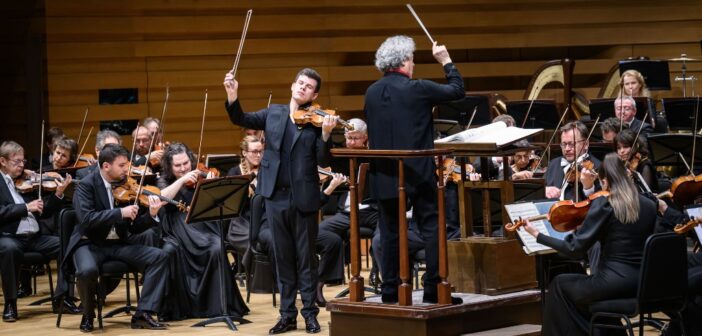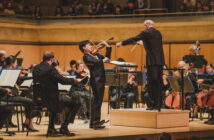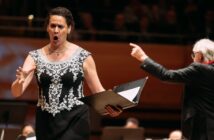2024 is the Year of Czech Music. Inaugurated in 1924 to celebrate the centenary of the birth of Bedřich Smetana, this tradition occurs every decade in the year ending in 4, which also marks other important milestones in Czech music history: Smetana’s death in 1884, Leoš Janáček’s birth in 1854, and Antonin Dvořák’s death in 1904.
How fortunate for us in Toronto that the 129-year-old Czech Philharmonic concluded the 100th anniversary of this celebration with two concerts in our city, as part of its North American tour in which the orchestra also played at Carnegie Hall. It was even more special to hear the orchestra and its conductor Semyon Bychkov at the intimate Koerner Hall, where they were making their debut.
The North American tour is naturally a celebration of Czech composers. The second Toronto concert on Dec. 8 opened with Dvořák’s Violin Concerto in A Minor. Even though it is not exactly Dvořák’s best work, nor does it have the same level of prestige or popularity as the Tchaikovsky or Brahms violin concertos that were written just a year before, its performance was elevated in every sense by the very orchestra that has Czech music heritage running richly in its veins.
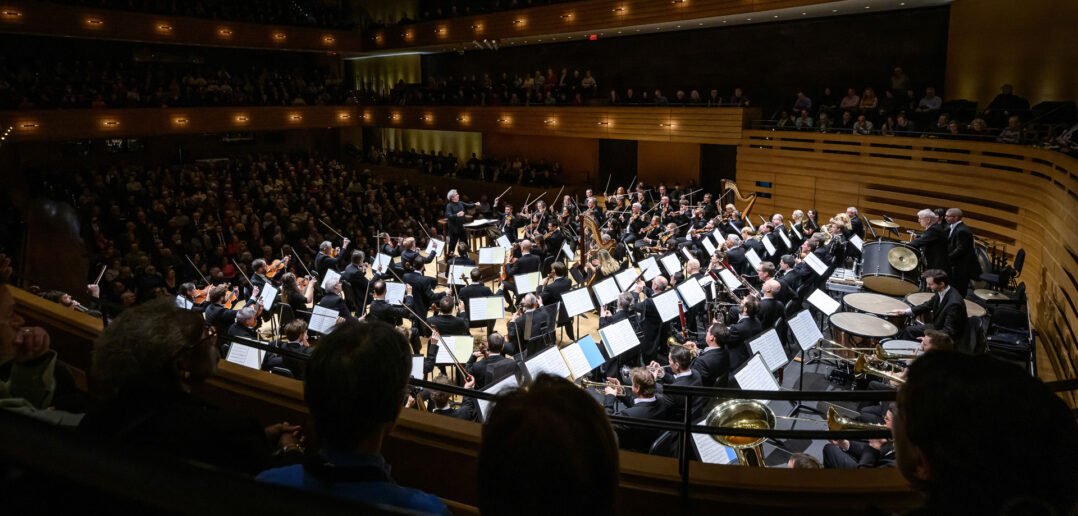
Czech Philharmonic conducted by Semyon Bychkov at Koerner Hall. Photo: Petra Hajská
The concerto starts with a sombre opening that gradually unfolds, like an aged wine developing its character over time that needs to be savoured slowly. The spirited final movement bursts with syncopated melodies that evoke colours of a Bohemian folk dance.
In the soloist role was the orchestra’s concertmaster Jan Mráček, a 33-years-young rising star. Mráček’s playing was a lesson in unpretentious eloquence and understated elegance. The camaraderie between Mráček and his fellow players was unmistakable, and their affable exchanges of smiles and glances were heartwarming to watch. Mráček solo encore of Paganini’s playful “Introduction and Variations on Nel cor più non mi sento” was another dazzling showcase of his artistry.
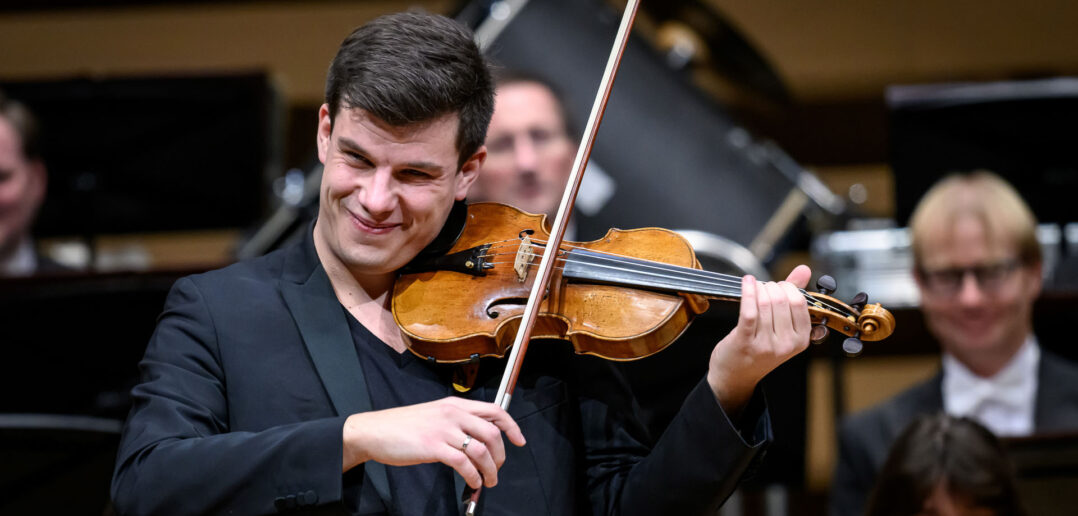
Jan Mráček (soloist) with the Czech Philharmonic. Photo: Petra Hajská
Gustav Mahler is not a composer usually associated with Czech heritage, even though he was born in Bohemia. The Czech Philharmonic has a special connection with Mahler, who conducted the world premiere of his Symphony No. 7 with the orchestra in 1908. Dec. 8’s performance featured his Symphony No. 5 in C sharp Minor, a piece Bychkov recorded with the orchestra in 2022, and is among the most performed of all the Mahler symphonies.
Mahler started composing the fifth symphony after a series of near-death events. The first movement opens with the signature trumpet call to a funeral march. Amidst the solemn mood, a lyrical melody emerges as a secondary theme.
Although the tempestuous second movement appears to present a disarray of cacophonous themes, these are eventually ingeniously woven together like an intense drama with complicated characters and hairpin plot twists. Just when you thought that the emergence of a sunny D major theme signaled a happy ending, the music switches back to a dark mood and eventually fades into a pianissimo finish.
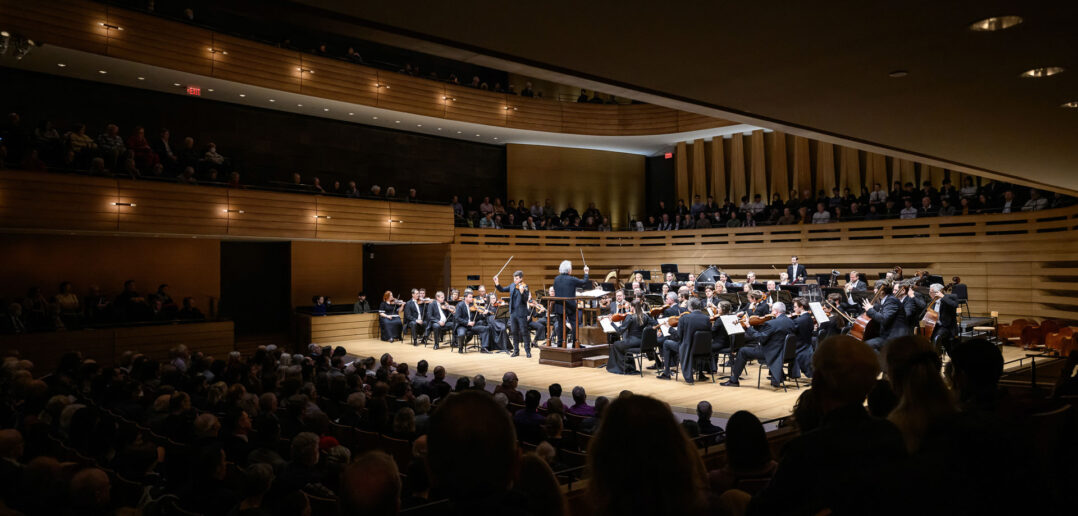
Czech Philharmonic conducted by Semyon Bychkov at Koerner Hall. Photo: Petra Hajská
This movement best exemplifies Mahler’s genius, and Bychkov deftly led the orchestra to a full display of explosive colour contrasts. The jovial third movement is a dance with elements of a waltz and perhaps a very subtle nod to the composer’s Bohemian roots. This stood in stark contrast to the fourth movement, the ubiquitous “Adagietto”, which makes popular appearances in films, funerals and commemorative events. Mahler famously wrote this movement as a declaration of his love for Alma Schindler, whom he married soon after.
Here, Bychkov took a step back and simply let the excellent strings and harp shine with their utterly tender and introspective playing. As the sublime music flowed like liquid gold, a feeling of serenity enveloped like a warm embrace. While the last note faded into obscurity, it felt like time stood still and everyone held their breath in complete silence.
The sudden turn of tragedy to happiness in Mahler’s life was mirrored in the joyous and triumphant finale, which felt like a celebration of the composer’s “rebirth”. The gripping conclusion was played with aplomb and gusto, and was greeted with cheers and a ten-minute standing ovation. It was evident from the warm welcome and gratitude of the Toronto audience that everyone shared the orchestra’s special connection to its Czech musical heritage. What a fitting finish to the Year of Czech Music.

